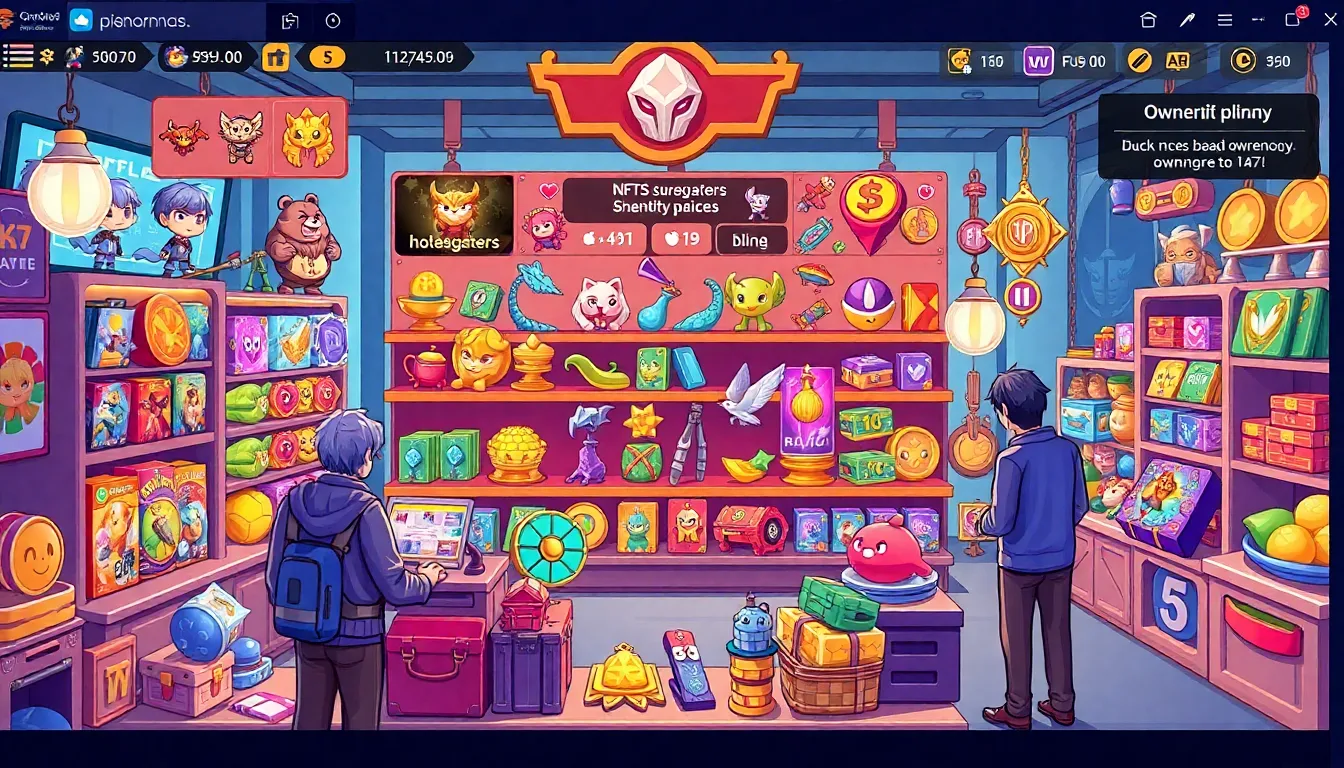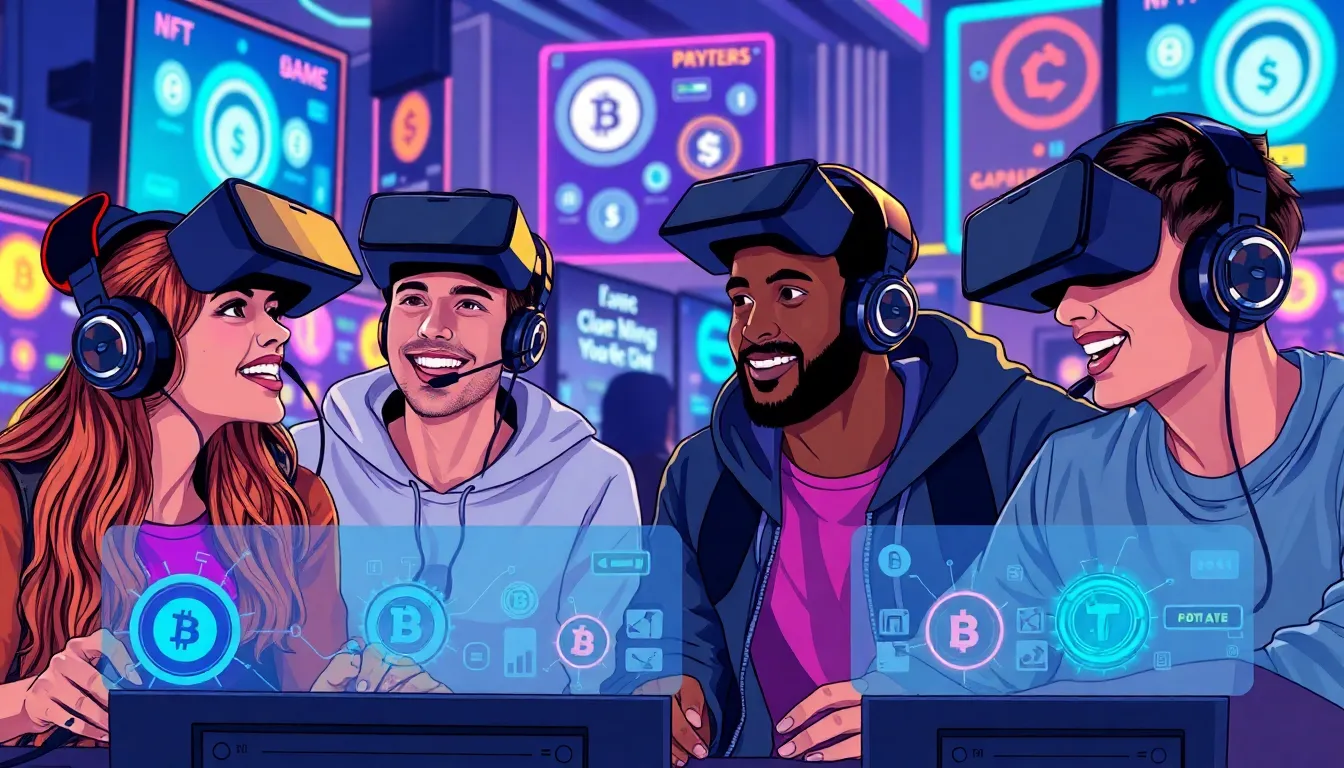In a world where pixels meet cryptocurrency, the gaming industry is undergoing a revolution that’s as thrilling as a high-stakes boss battle. Crypto game development companies are at the forefront of this transformation, crafting immersive experiences that not only entertain but also offer players a chance to earn real-world rewards. Who wouldn’t want to slay dragons and rake in digital gold while doing it?
Table of Contents
ToggleOverview of Crypto Game Development
Crypto game development represents a pivotal shift in the gaming landscape. This innovation merges entertainment with financial opportunity, allowing players to not only enjoy games but also participate in the evolving world of cryptocurrency.
What Is Crypto Game Development?
Crypto game development involves creating video games that utilize blockchain technology. Blockchain enhances security and transparency in gameplay, establishing ownership of in-game assets. Players can trade these assets, such as characters or items, through decentralized marketplaces. Unique token standards like NFTs play a crucial role in differentiating assets within these games. Engaging mechanics like play-to-earn models ensure players receive tangible rewards for their efforts, transforming traditional gaming experiences.
Importance of Blockchain in Gaming
Blockchain’s significance in gaming cannot be overstated. It introduces decentralized ownership, allowing players to maintain control over their digital assets. This security fosters trust among players, enhancing their engagement. By using smart contracts, developers automate functions, ensuring smooth and fair gameplay experiences. Additionally, transparency in ownership and transaction history strengthens the gaming ecosystem. Overall, blockchain empowers players and creators alike, solidifying its necessary role in modern game development.
Key Features of Crypto Games

Crypto games offer innovative features that enhance player engagement and create unique experiences. They leverage blockchain technology to transform the gaming landscape.
Ownership and Digital Assets
Players retain true ownership of digital assets through blockchain technology. Each asset, often represented as NFTs, provides verifiable proof of ownership and authenticity. These assets include characters, skins, and unique items, which players can buy or sell on decentralized marketplaces. Players’ ability to transfer assets fosters a sense of investment in the game. With ownership, gamers can benefit from the appreciation of their in-game items, ensuring that their time and effort contribute to tangible value in the real world.
In-Game Economies and Tokens
In-game economies thrive on the introduction of tokens within crypto games. Tokens serve as the currency for transactions, enabling players to buy, sell, and trade assets seamlessly. Developers design unique economic systems to encourage player interaction and investment. Players earn tokens through various activities, such as completing missions or winning battles. These earned tokens can often be converted into fiat currencies or other cryptocurrencies, injecting real-world value into the gaming experience. The dynamic economy fuels competition and fosters community engagement, making participation rewarding on multiple levels.
Choosing a Crypto Game Development Company
Selecting a crypto game development company involves careful consideration of various factors. Identifying the right partner ensures successful game creation and implementation.
Factors to Consider
Evaluate a company’s expertise in blockchain technology. Proficiency in integrating this technology directly correlates with the quality of the game. Assess their portfolio for past projects and client testimonials, which demonstrate experience and reliability. Look at their understanding of the gaming niche to ensure they align with the desired target audience. Examine their commitment to post-launch support and maintenance, crucial for keeping the game updated and engaging. Prioritize companies that emphasize security protocols, protecting both the game’s assets and player information. Lastly, consider their flexibility in adapting to industry trends, allowing the game to evolve alongside the rapidly changing crypto landscape.
Top Companies in the Industry
Several companies stand out in the crypto game development space. Unity Technologies leads with extensive tools for game developers, offering scalability and versatility. Immutable X specializes in NFT development, providing solutions for projects looking to incorporate unique assets. Enjin focuses on creating robust gaming ecosystems, facilitating easy transactions and asset management. Animoca Brands excels in combining gaming and blockchain technology, producing popular titles that leverage cryptocurrency’s potential. Decentraland stands out by enabling users to build and monetize virtual spaces, showcasing innovative gameplay. These companies exemplify the range of expertise and creativity in the industry.
Development Process of Crypto Games
The development process of crypto games involves several critical stages that ensure a seamless gaming experience. Each phase requires careful planning and execution.
Conceptualization and Design
Conceptualization begins with defining the game’s core mechanics. Developers identify unique features that differentiate the game from competitors. Art styles and narrative elements also play significant roles in shaping the game’s identity. User experience takes center stage, focusing on engaging gameplay that retains player interest. Collaborative brainstorming sessions often lead to innovative ideas that enhance playability. Prototypes emerge from design concepts, providing a tangible representation of the game’s vision.
Smart Contract Implementation
Smart contract implementation follows concept development, integrating blockchain technology into the game’s framework. These contracts automate transactions and ensure transparency in player interactions. Developers create specific rules governing the game’s economy, including the trade of in-game assets. Each transaction conducted through these contracts enhances security. Testing occurs extensively to eliminate bugs and ensure reliability. The seamless interaction between game mechanics and blockchain technology solidifies player trust. The successful integration of smart contracts ultimately enriches the overall gaming experience.
Future Trends in Crypto Game Development
The gaming industry sees rapid evolution, particularly through the innovative adoption of new models and technologies. Key trends emerge, highlighting significant shifts in player engagement and game mechanics.
Rise of Play-to-Earn Models
Play-to-earn models gain traction among players, allowing them to earn real rewards while gaming. Games implementing these models provide opportunities for users to monetize their time and skills. By incorporating cryptocurrency and asset ownership, players can collect tokens and NFTs as they advance. Successful examples include titles like Axie Infinity and Decentraland, showcasing lucrative in-game economies that create financial incentives. Developers focus on creating engaging environments that maximize earning potential while enhancing the gameplay experience. With this shift, developers increasingly explore unique mechanisms that sustain player interest and grant economic opportunities.
Integration of Augmented Reality
Augmented reality, or AR, transforms the gaming landscape by blending virtual elements with the real world. Gamers engage more deeply through immersive experiences, enhancing player interaction. Popular AR games like Pokémon GO demonstrate that players can explore their environments while reaping rewards through crypto. Incorporating this technology leads to innovative gameplay that captivates audiences and fosters community connections. Crypto game developers prioritize AR integration to create compelling narratives and unique experiences for players. As this technology advances, developers adapt, ultimately enriching gameplay while pushing the boundaries of how users interact with both the game and the world around them.
The evolution of crypto game development is reshaping the gaming landscape in unprecedented ways. By blending entertainment with financial opportunities players are no longer just participants but also investors in their gaming experiences. The integration of blockchain technology enhances security and ownership while fostering vibrant in-game economies.
As the industry continues to innovate with play-to-earn models and augmented reality features developers are poised to create even more engaging and rewarding experiences. This transformation signifies a new era in gaming where players can truly benefit from their time and effort. The future of crypto gaming looks bright and full of potential for both players and creators alike.





